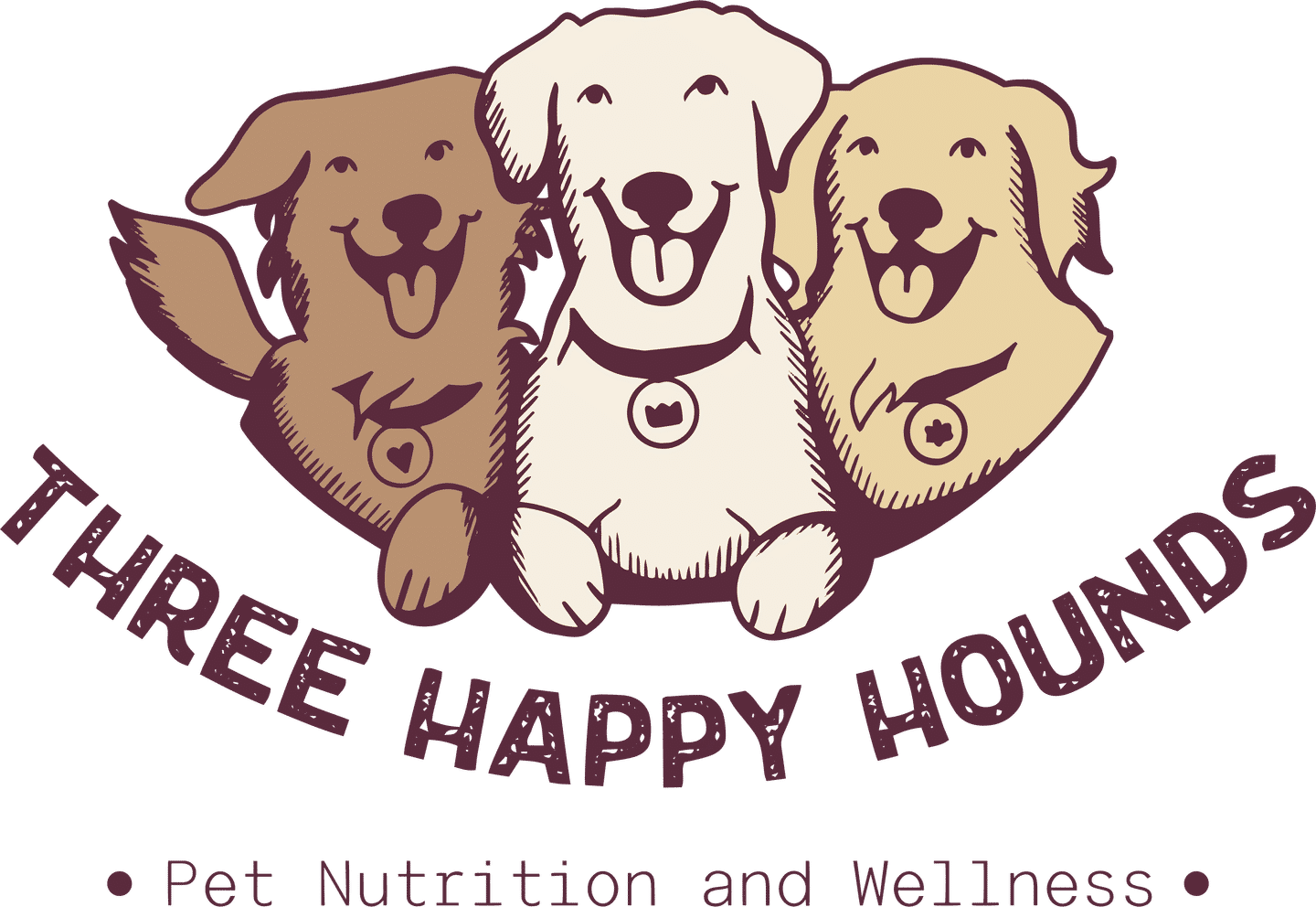As we celebrate National Fruit and Veggie Month, Three Happy Hounds is excited to share the benefits of fruits and vegetables for your pets. Today, we're highlighting collards and their incredible health benefits for dogs.
Collards are not only a tasty low-calorie treat for your dog but also offer a variety of essential nutrients that contribute to their overall well-being. Here are some remarkable advantages of collards:
Packed with Antioxidants
Collards are abundant in antioxidants, which help protect your dog's cells from damage caused by free radicals. These antioxidants can help reduce inflammation and slow down the aging process, keeping your furry companion feeling vibrant and healthy.
Cancer Prevention Properties
Collards contain sulforaphane, a compound known for its chemopreventive properties. By incorporating collards into your dog's diet, you may help protect them against the development of cancerous cells.
Supports Eye Health
Collards are rich in antioxidants that support eye health, such as beta-carotene, lutein, and zeaxanthin. These nutrients help protect your dog's eyes from harmful UV rays and oxidative stress, reducing the risk of cataracts and age-related macular degeneration.
Rich in Essential Nutrients
Collards are an excellent source of essential nutrients like vitamin K, calcium, and beta-carotene, which are vital for maintaining healthy bones, blood clotting, and immune function in dogs.
Enhances Gut Microbiome and Bowel Health
Collards are high in insoluble fiber, which can improve your dog's gut microbiome and bowel health. However, they also contain antinutrients like oxalates, so it's crucial to cook collards before feeding them to your pet to reduce antinutrient levels and ensure safe consumption.
When it comes to feeding your dog collards, keep these points in mind:
- Always cook the collards before feeding them to your dog. This will help break down the fibers and make it easier for your pet to digest.
- Remove raw collard stems before cooking and serving to avoid choking hazards.
- Collards should constitute less than 10% of your pet's daily caloric intake, and serving sizes should be moderated.
- Introduce collards gradually into your dog's diet to prevent any digestive upset.
Incorporating collards into your dog's diet can provide numerous health benefits. As with all fruits and vegetables, moderation is key.
At Three Happy Hounds, we're dedicated to providing the best in health and wellness for your pets. Visit our store in Fernley, NV, for a wide selection of dog and cat food, supplements, and supplies to keep your furry family members happy and healthy. Enjoy National Fruit and Veggie Month!

